Kotaku’s Weekend Guide: 7 Games To Take You To Worlds Beyond
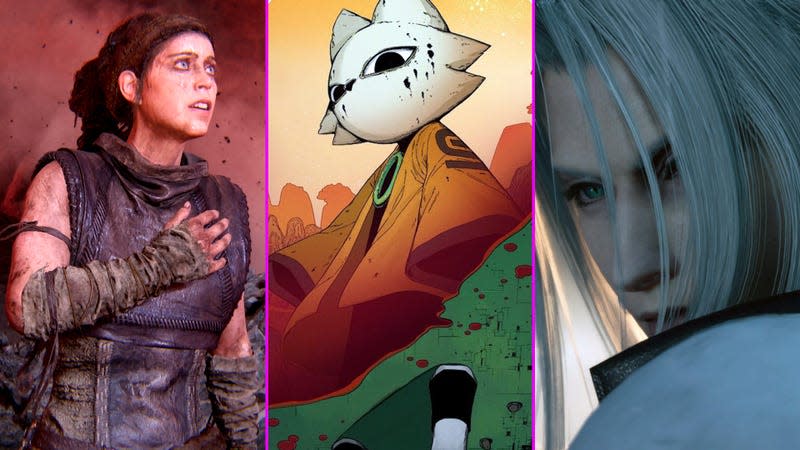
It’s the end of May, and the welcoming of June 2024. Summer is here. Pride month is here. And we’re taking the time this weekend to cram in some more gaming with a few recent titles, a wonderful indie game from a couple of years ago, the return of a GameCube title from 2004, and more.
If you’re in search of something to play this weekend, we invite you to consider these fine gaming experiences.
Nine Sols
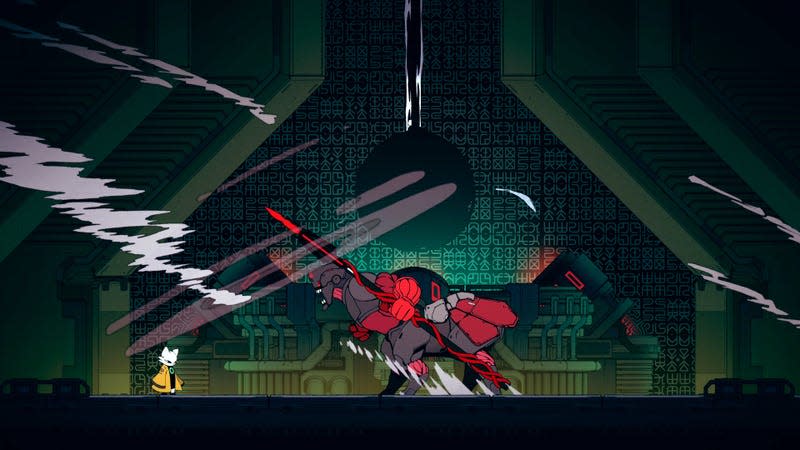
Play it on: PS5, Switch, Windows (Steam Deck YMMV*)
Current goal: Get lost in its gorgeous Taopunk world
Nine Sols strikes me as an interesting follow-up to Red Candle Games’ previous work in the horror genre, with Detention and then Devotion, but I’m here for it. The studio’s been quiet about the game for a long time now, sparingly offering up updates over the last year, but it’s finally here and I’m relishing the chance to play it all weekend. Inspired by Taoism, but mechanically akin to a 2D Sekiro, I’ve been stoked on Nine Sols’ blending of faith, mythology and a grim sci-fi world since I first saw it. A demo from a year ago assured me of its mechanics, and now that it’s in my hand, I’m finally able to lose myself in Nine Sols and parry my way through its gorgeously rendered world. Just as soon as I finish Lorelei and the Laser Eyes, though. – Moises Taveras
*Your mileage may vary
Final Fantasy VII: Rebirth
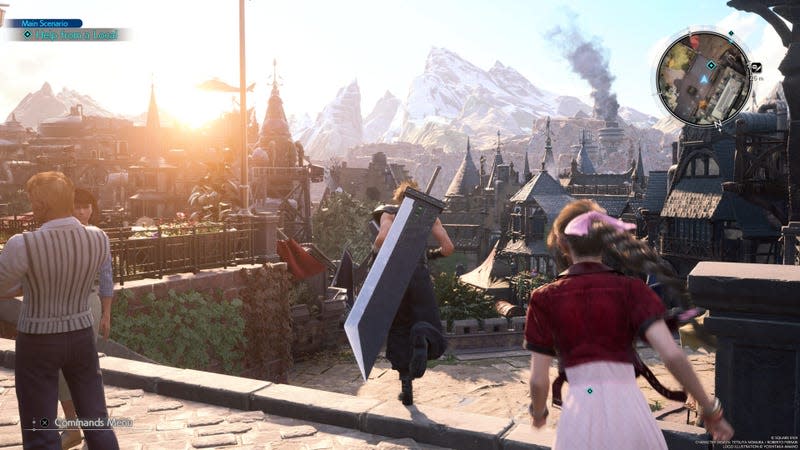
This game burned me out bad, man. My most anticipated release of 2024, Final Fantasy VII Rebirth quickly exhausted my hype levels. I went hard the first weekend it came out, played several evenings afterwards, and then drifted to playing once or twice a week. I reached peak enjoyment while perfecting my timing during the Shinra parade in Junon, and quickly hit a wall upon arriving in Costa Del Sol. It’s not that I ever stopped enjoying the game—my momentum just kind of fizzled. Tons of other stuff came out. Helldivers 2 was much easier to drop in and out of during spare moments here and there. More recently, Diablo IV’s been serving as that end-of-evening brain-off respite. But I really want to finish Rebirth. I need to finish Rebirth. So this weekend I’m going to try to mainline the story as much as possible before the endless mini-games and open-world side activities once again grind things to a halt. I love that stuff, but I can’t wait 100 hours to see this ending everyone hates so much. At least nothing’s coming out next month to get in my way. — Ethan Gach
Isles of Sea & Sky
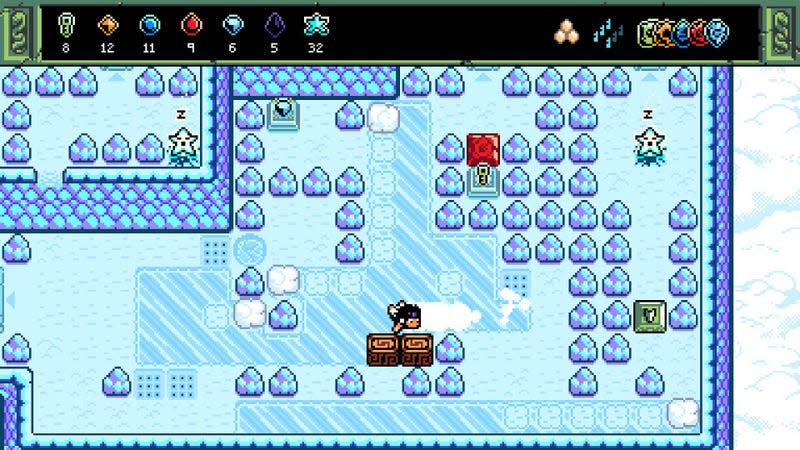
Play it on: Switch, Windows (Steam Deck YMMV)
Current goal: Stars! MORE STARS!
If you asked me if I needed another block-pushing puzzle game in my life, I’d likely have just shaken my head and walked away. I don’t know what caused me to even load up Isles of Sea & Sky, given its Sokobanish stylings, but I’m ever so glad I did.
This is far more than standard block-pushing. This is a vast, ever-expanding world of islands to explore, each packed with unique puzzles, often solvable in two or three different ways for different rewards. It has heavy A Link to the Past undertones, while never feeling like it’s leaning on Zelda as an inspiration, instead possessing its own unique character. Each island has a sort of deity-like being that needs you to find six of at least a dozen tokens, which will then unlock new blocks that allow you to re-approach the area’s puzzles using new skills. For instance, the second island you’ll likely explore has specific blue blocks that are eventually transformed into gorgeous little blue sprites, who will take on the properties of any block they’re shoved into. This obviously has enormous consequences on puzzles you couldn’t solve before, and offers new ways to approach those you could to reach a different prize.
I really, really thought I was done with this genre, usually finding the nature of sokoban puzzles—where you’re endlessly finding yourself in dead-ends—to be far too frustrating, but Isles of Sea & Sky (once known as Akurra) removes all of this with single-button taps to take back any move, and another tap to reset a location. It’s also just so damned smart. — John Walker
Paper Mario: The Thousand-Year Door
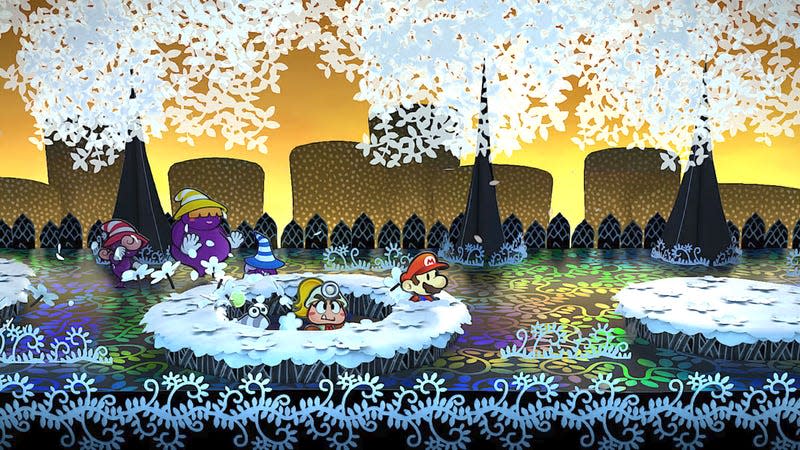
Play it on: Switch, GameCube
Current goal: Find the second star
Sometimes, you worry that something you loved many years ago may not be quite as great as you remember, and so you’re wary of returning to it and potentially finding that what you once found extraordinary now seems merely good, or (god forbid) fine. I felt a bit of this concern before diving back into one of my all-time favorite games, Paper Mario: The Thousand-Year Door, via its brand-new remake on the Switch. I needn’t have worried, though. If anything, what I’m finding is that it’s even better than I remembered.
Everywhere I go, the writing is so funny, so sparkling, so heartfelt, that I’m deliberately talking to every last minor NPC because I don’t want to miss a word. For me, that delightful writing and the wonderful cast of characters you meet remain the game’s biggest draws, but the game shines elsewhere, too. Navigating the world, and using Mario’s ever-increasing assortment of abilities—err, I mean terrible curses—to find secrets and access new areas, is a delight, and the combat hits that sweet spot of being accessible to genre newcomers and deep enough to keep you engaged. But yes, come for the writing, and the game’s endearing papercraft visuals, which look better than ever on the Switch. You won’t be disappointed. — Carolyn Petit
Signalis
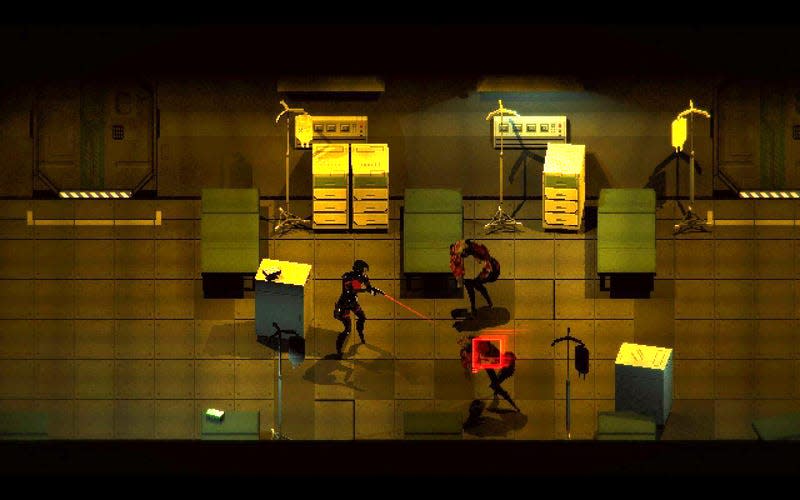
Play it on: PS5, PS4, Xbox Series X/S, Xbox One, Switch, Windows (Steam Deck OK)
Current goal: Just enjoy it
Ever since I reviewed the retro-inspired horror game Crow Country at the beginning of May (and found it lacking), I’ve been itching to revisit 2022’s Signalis. The first game from the two-person team Rose Engine was one of my favorite of the year, and it’s never quite left my mind since. Like Crow Country, Signalis is a survival horror game that visually and mechanically pulls heavily from the PlayStation 1 games that defined the genre (think Silent Hill and Resident Evil). Where the two differ, however, is in execution.
Signalis is one of those rare retro-inspired games that so intrinsically understands what makes its inspirations tick, and is able to not only recreate their greatness but build on it. The game follows android LSTR as she seeks to find her partner in the abandoned halls of a mining facility, now overrun with zombie-like creatures. Through item scarcity, inventory management and puzzles, the player must go deeper into the facility as you learn what caused a mysterious disease now running rampant. On top of the excellent use of tension is a wonderfully twisting story about love, and it’s pretty excellent. Signalis is a game that constantly rewards revisiting its world and I can’t wait to see what new things I pick up on this time around. – Willa Rowe
Multiversus
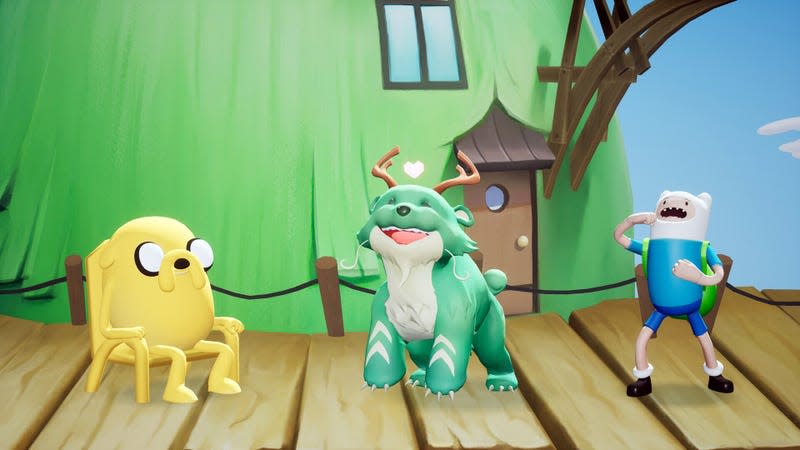
Play it on: PS5, PS4, Xbox Series X/S, Xbox One, Windows (Steam Deck YMMV)
Current goal: Figure out if I actually like this game or not
I don’t like most platform fighters, and I don’t think WB’s crossover brawler Multiversus is going to be any different. I like the idea of playing as Harley Quinn and beating up Bugs Bunny, but after Super Smash Bros. and Nickelodeon All-Star Brawl, I just don’t think the whole “hit somebody until they fly out the ring” format works for me. It’s part of why PlayStation All-Stars Battle Royale feels more enjoyable, because I don’t spend the whole game trying to knock enemies away. But Multiversus is free-to-play, so it’s not like I lose anything by giving it a shot. Though, from the sound of it, some people are having more trouble than I am in terms of stability. Maybe it could surprise me, if it can get some of the performance issues in order. — Kenneth Shepard
Senua’s Saga: Hellblade II
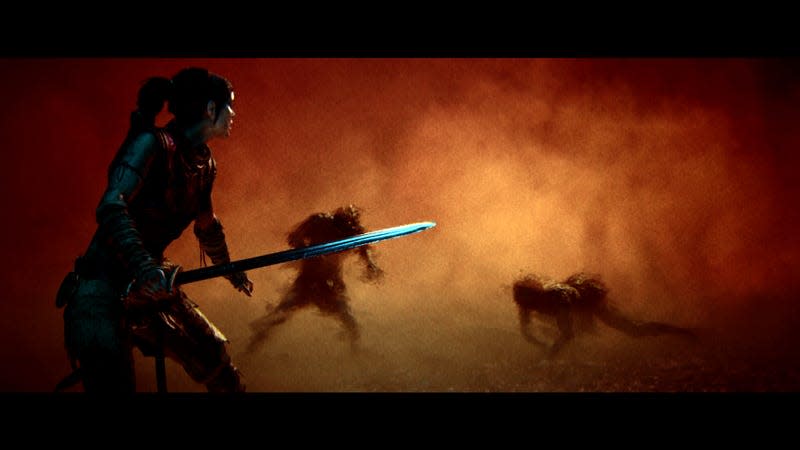
Play it on: Xbox Series X/S, Windows (Steam Deck YMMV)
Current goal: Finish the game with “The Others” narration, then start it again with Druth’s narration
Senua’s Saga is easily one of—if not my absolute—favorite games of this year. As I said in my review, it’s dark, lush, thought-provoking, and deeply cathartic to play. It’s a mere eight hours long, with just 11 achievements (that I’m one shy of), and yet I keep playing it, yearning to learn as much as I can about this game.
Read More: Senua’s Saga: Hellblade II: The Kotaku Review
It’s not something I play for a challenge (though I’d argue the combat can be quite fun). At least not in the conventional sense of what we think of as a video game. It’s a game that focuses on a woman who has lived through trauma, and continues to push through unstoppable odds, including frequent torment from her own internal dialogues, the domineering mental presence of her abusive father, and the challenge of resisting the impulse to respond to tragedy with aggression and violence. That’s all packaged in a beautiful visual presentation, with poetic dialog and wonderful voice performances.
Read More: Hellblade II Tips For Mastering The Game’s Visceral Combat
So no, I don’t care that the combat and puzzles are “simple” or that there’s a lot of walking and talking. This is a game that invites me to understand the challenges of my own heart and emotions, and begs me to think about how I move through this world with the time I have left. — Claire Jackson
And that wraps our picks for the weekend. We wish you all a happy 48-hours of responsibility-free gaming!


